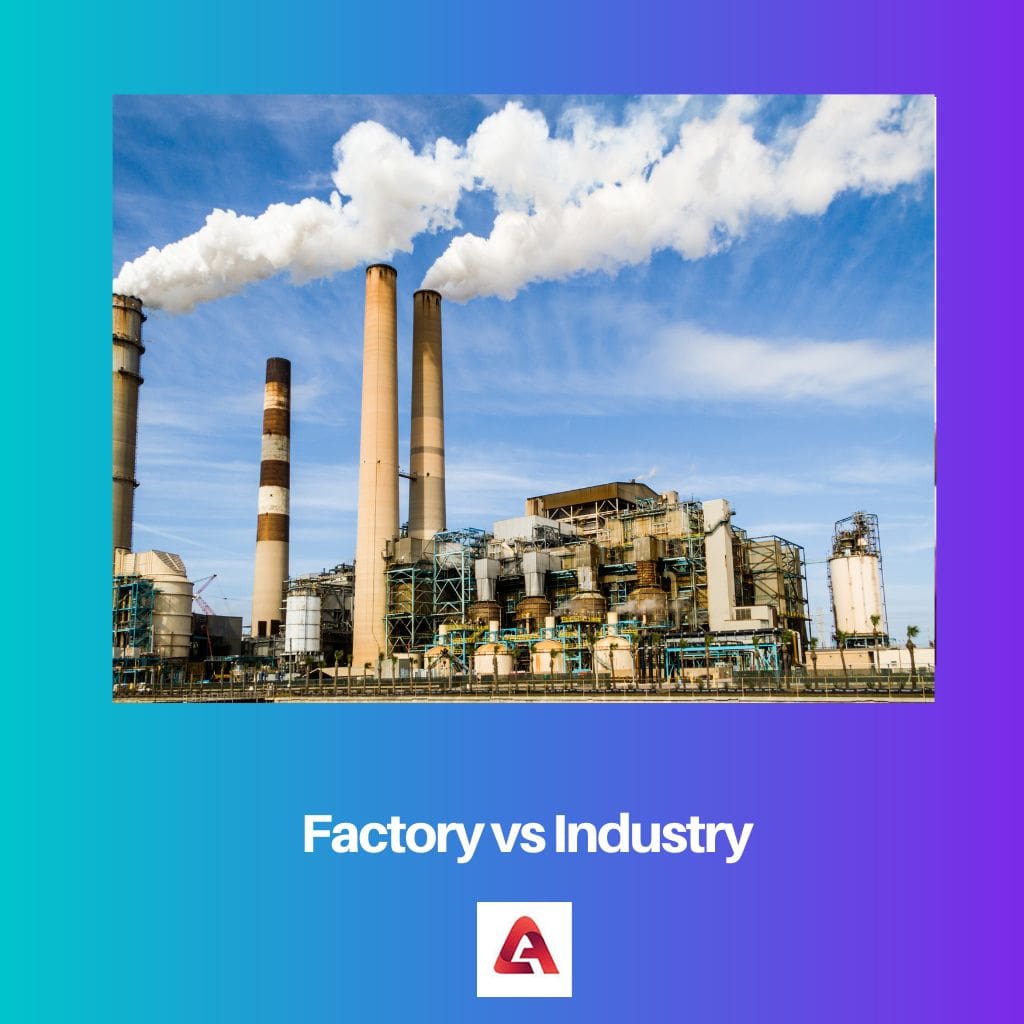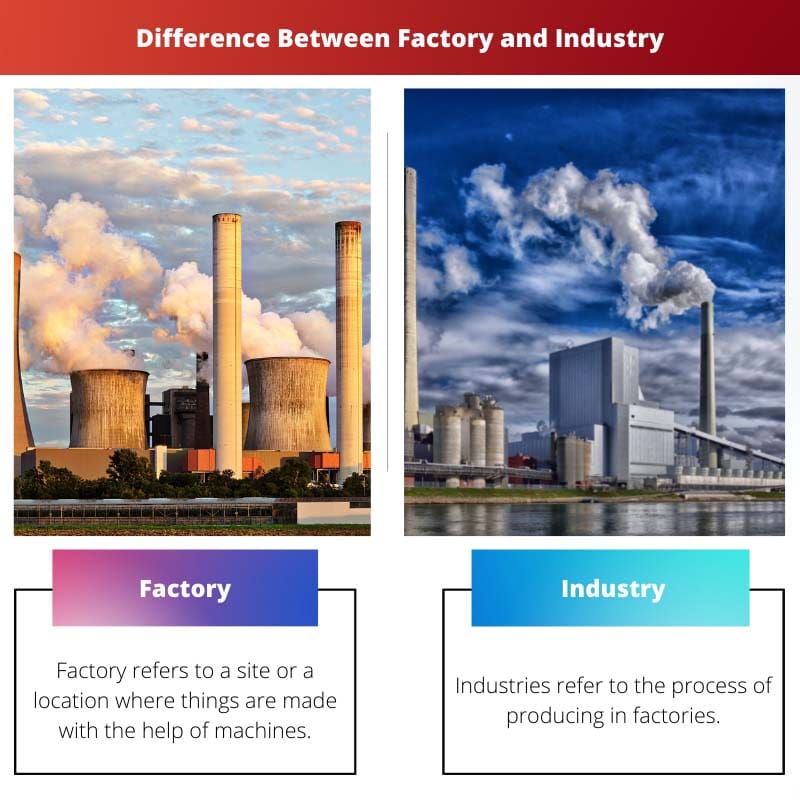These are common business terms that are confused with each other. Both the words factory and industry are referenced with places of production.
Factories and industries are tasked with making an object or a product that reaches wholesalers, retailers, and customers eventually. They are used in proportion to a large quantity.
Key Takeaways
- Factories focus on producing specific goods, while industries encompass a broader range of related production processes.
- Factories operate as single units, whereas industries consist of multiple factories and businesses.
- Factory output directly contributes to the production of goods, while industries include support services like marketing and distribution.
Factory vs Industry
A factory is a building or a complex of buildings where goods are manufactured or assembled using machines, equipment, and labour. Industry refers to a broader category of economic activity that encompasses all the companies involved in the production and sale of goods in a particular sector.

The factory is a term used to denote a place where things are made by people, using the aid of machines. These are locations or sites that undertake any business procedures.
Factories are listed under industries and therefore are a narrower concept than their counterpart. A simpler distinguishment of the term can be said that factory refers to an individual term.
Industry is a word that is used in reference to the work or process of making things in factories. They include all the companies that make the same product or material.
Therefore, the word industry is coined to be known and regarded as a concept. The notion is a much wider one than factories. Thus, the industry is a collective term.
Comparison Table
| Parameters of Comparison | Factory | Industry |
|---|---|---|
| Definition | Factory refers to a site or a location where things are made with the help of machines. | Industries refer to the process of producing in factories. |
| Purpose | The major purpose of factories is to facilitate the production of consumer goods. | Industries help in the classification of different businesses and in the calculation of GNP. |
| Concept | Factories come under industries. | Industries are a concept or a notion. |
| Types | Job shops, electronics, metal, chemicals, petroleum, etc. | Primary, secondary, tertiary. Quaternary is also considered a type. |
| Scope | A factory has a narrow scope. | The industry has a wider scope in comparison. |
What is a Factory?
A single building or a number of buildings within which goods are produced or manufactured is termed a factory. These goods are produced with the aid of machines and labour.
The goods thus produced contain an economic value. Therefore, a fixed location is procured to seamlessly produce goods that carry value. This location or site comes to be known as the factory wherein the goods are produced.
A factory is known by other names, such as a manufacturing plant, or manufacturer. Inside factories, the labourers are expected to produce products using raw materials or assemble products with the help of several different machines.
Factories also play a vital role in helping enhance cordial relationships between the owners and the employees or labourers. This is a must for the efficient functioning of the factory and the production process to continue seamlessly.
Factories gained momentum with the Industrial Revolution when the world started demanding goods in larger supplies. This paved the need for the rising number of factories.
Factories come under industries. Therefore, factories are a much narrower concept.
Factories help in the production of goods, consumables, and products for final or intermediate consumption that ultimately contributes to the GNP of the country and its growth and development.
All production takes place in factories. This gives birth to several different types of factories. Every different sector, such as pharmaceuticals, fertilizers, and electricals, makes up different factories.

What is an Industry?
An industry is a term that is used to signify a collection of businesses that are tasked with the manufacturing of materials and providing services. Put, and they point out all the companies that make the same thing.
Industries are a sum total of a concept or a notion. Therefore, they play a critical role in factoring several economic theories. They come under the branch of economics that deals with goods, services, and raw materials being produced.
Due to their collective term and the idea of a notion or concept, industries have a wider spectrum and scope. They also contain factories in their circle.
The primary aim of the industry is considered to be its ability to raise the living standards of people. They also contribute to the economic condition of the nation. Thus, they play a vital role in increasing the GNP.
Industries provide goods and services, and these products are manufactured in the industries. Industries help in increasing productivity and reducing the cost of production.
They can be classified or segregated into a few major types, namely, primary, secondary, and tertiary. These deal with different products and their concerning factories. Quaternary is also considered a type of industry.

Main Differences Between Factory and Industry
- A factory is called in reference to a site or a location where things are made with the help of machines. An industry is known as a collection of similar kinds of factories or manufacturers.
- All factories can be listed under industries. Industries, on the other hand, refers to a concept or a notion.
- Factories are considered to have a narrow scope. By comparison, industries possess a wider scope.
- Examples of factories include job shops, electronics, metal, chemicals, petroleum, etc. Primary, secondary, tertiary, and quaternary come under types of industries.
- Factories represent a physical or tangible location. Industries are abstract or intangible concepts.
